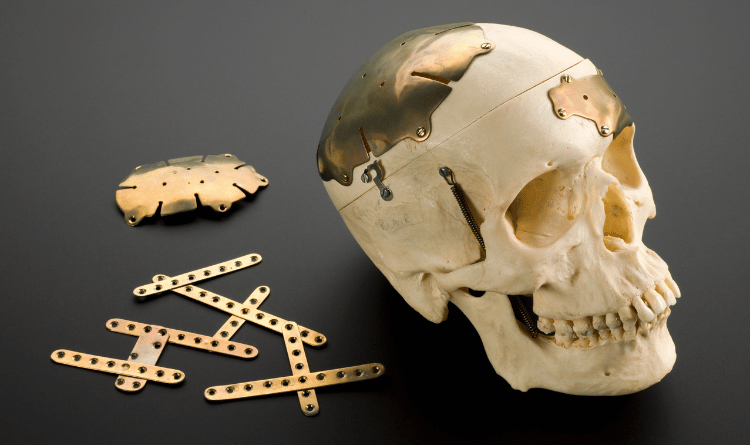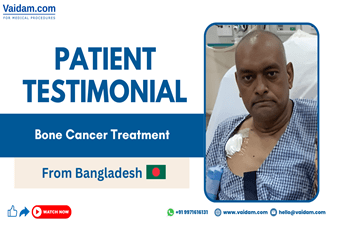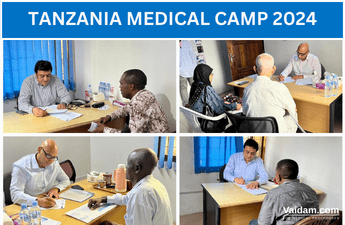
Cranioplasty is a neurosurgical procedure that serves patients who have experienced traumatic injuries, congenital defects, or necessary neurosurgical interventions resulting in cranial defects. The surgery helps in preventing recurrent brain damage.
Cranioplasty dates back to 7000 BC. The first documented cranioplasty was done by Fallopius, who did repairs using gold plates. The first bone graft craniotomy was performed in 1668 by Janszoon van Meekeren on a Russian man.
Since cranioplasty is a major surgery, you must select the most skilled surgeon for successful results. Neurosurgeons in countries like India, Germany, Thailand, Turkey, and UAE are rich in experience and use the latest techniques for surgery. You can trust these surgeons as they have been internationally trained and have high success rates.
This blog aims to shed light on the significance of cranioplasty, exploring its purpose, materials used, procedure, and the risks involved.
Get in Touch with Medical Experts
What is Cranioplasty?
Cranioplasty is a neurosurgical procedure done to treat skull defects. The surgery reshapes or repairs the irregularities in the skull. A cranioplasty is mainly done after a traumatic head surgery or for aesthetic purposes. The surgery involves either using bone grafts or synthetic materials.
Cranioplasty is a significant part of neurosurgery. It addresses cranial defects, which can result from injuries, congenital abnormalities, infections, or when a part of the skull is removed during neurosurgical procedures.
It is a major surgery that has moderate to high risks associated with it. The usual time for surgery is about 3 hours, but it may take longer, depending on the case's complexity.
Why is a Cranioplasty Recommended?
There are several reasons why a neurosurgeon might recommend a cranioplasty surgery:
- If there's a defect in the skull, your brain will be vulnerable to injuries. A cranioplasty will offer additional protection to the brain by repairing the damage.
- Craniectomy sometimes causes sinking skin flap syndrome. The syndrome is associated with neurological deterioration. Cranioplasty helps restore the skull flap and improves some patients' neurological functions.
- A patient with a noticeable skull defect can also opt for a cranioplasty for aesthetic purposes. It helps in improving the patient's appearance and confidence.
A cranioplasty treat:
- Skull shape irregularities
- Damage following a traumatic injury
- Areas of the skull where the brain is vulnerable to injury
- Defect or hole in the skull caused by previous surgery
- Congenital conditions
What are the Benefits of Cranioplasty?
Cranial defects can be caused by complications from previous surgery, congenital defects, or injury to the head. Cranioplasty helps in improving these defects.
Other benefits of cranioplasty include:
- Reshapes the head
- Reduces headaches
- Improve brain function
- Fixes dimpling after craniectomy
- Protects the brain
What are the Materials Used for Cranioplasty?

During cranioplasty, the surgeon has a variety of materials to choose from for correcting the skull defect and restoring the contour. Some of the materials that can be used are:
- A skull piece that was removed in a previous surgery
- A bone from another part of the body
- A metal plate or mesh, generally made up of titanium
- A customized implant (polymethyl methacrylate and polyetheretherketone)
- Synthetic materials that are just like bone (calcium phosphate, hydroxyapatite)
The surgeon will choose the material considering the procedure's need and the one with minimum associated risks.
What is the Cost of Cranioplasty?
The cost of cranioplasty depends on multiple factors:
- The country you opt for
- The type of hospital (private or government), room (private room or general ward)
- The extent of the surgery
- Post-operative complications (if any)
- Cost of accommodation for follow-ups
Various countries offer cranioplasty at affordable prices without compromising the quality of services. In India, the cost of cranioplasty starts from USD 6,100. Similarly, the surgery price ranges from USD 6,300 to USD 7,700 in Turkey. If you wish to get more premium services, you can opt for Germany, where the cost of cranioplasty averages around USD 11,000.
These costs include preoperative diagnostic tests, surgery costs, cost of medicine, hospital stay, and post-operative costs.
What are the Preparations Done Before Cranioplasty Surgery?
- The surgeon will take your medical history and ask about your symptoms during initial consultations.
- The surgeon orders tests like MRI, CT, X-Ray, and blood tests. These tests help in giving an accurate diagnosis. The neurosurgeon will walk you through the procedure once you are selected as the right candidate for the cranioplasty.
- The surgeon will explain all the associated risks and benefits of the surgery. Surgery preparation also involves measuring and creating prosthetics that fit the skull defect.
- You must inform the surgeon if you have any health problems such as blood clots, allergies to any medications, or taking medicines like aspirin. You may be asked to stop taking these medications a few days before the surgery.
- The surgeon might recommend medications like antibiotics and anticonvulsants to reduce the risks of surgery.
- If you drink alcohol or smoke tobacco, you might be asked to stop consuming these products or limit the intake one week before the surgery. You'll have to wait two to three weeks after the surgery before you start consuming these substances again to prevent post-operative complications.
What Happens During Cranioplasty?

- On the day of cranioplasty, an anaesthesiologist will give you general anesthesia.
- You'll be taken to the operating theatre, and the site of the incision will be shaved and cleaned.
- An incision will be made into the skin. If you had a craniectomy before the surgery, the incision would be made on the same line as the previous surgery.
- Tissues and muscles will be carefully moved to expose the skull region.
- The skull is repaired, and the missing part is replaced with either bone or synthetic material. The implant will be secured using titanium plates and screws.
- The scalp is then moved back to its original position, and the incision is closed using nylon sutures.
- A small suction drain may also be left in place to remove excess fluid. The drain pipe is removed after a few days.
What to Expect While Recovering From a Cranioplasty?
- Once the surgery is complete, you will be taken to your room and monitored for complications.
- The nursing staff will constantly measure pulse, blood pressure, limb strength, and level of alertness.
- You would be encouraged to move about normally in a day or two. The head bandage will be removed two days after the cranioplasty.
- On average, patients undergoing cranioplasty will be required to spend around five days in the hospital. You may be required to stay for more days in the hospital if any complication arises.
- Medications like analgesics are given to ease the pain, swelling, and headaches. Antibiotics are recommended to avoid infections, one of the most common post-operative complications.
- Before giving discharge, the surgical team will conduct imaging tests to check if you are healing as expected.
- Specific instructions will be given, like avoiding strenuous activities, taking plenty of rest, and resting with the head elevated.
What are the Risks and Complications Associated with Cranioplasty?
Various studies have shown there is a nearly 40% chance of developing complications and risks following a cranioplasty surgery. The chances of complications depend on the intent of surgery and the patient's general health.
The most common risks include:
- Infection
- Blood clot
- Brain damage
- Pneumonia
Cranioplasty can also cause life-threatening complications like:
- Hydrocephalus
- Stroke
- Seizure
You must contact the surgery team immediately if you experience fever, seizures, increasing headache, swelling/infection in the wound, or fluid leaking from the wound.
Takeaway
Cranioplasty, a complex yet transformative surgical procedure, plays a vital role in the field of neurosurgery. The surgery strengthens problem areas by adding greater protection for the brain. Like any other surgery, cranioplasty also comes with several risks that can be managed easily if detected early. Apart from medical benefits, the surgery also improves the skull's appearance, serving an aesthetic purpose.






































